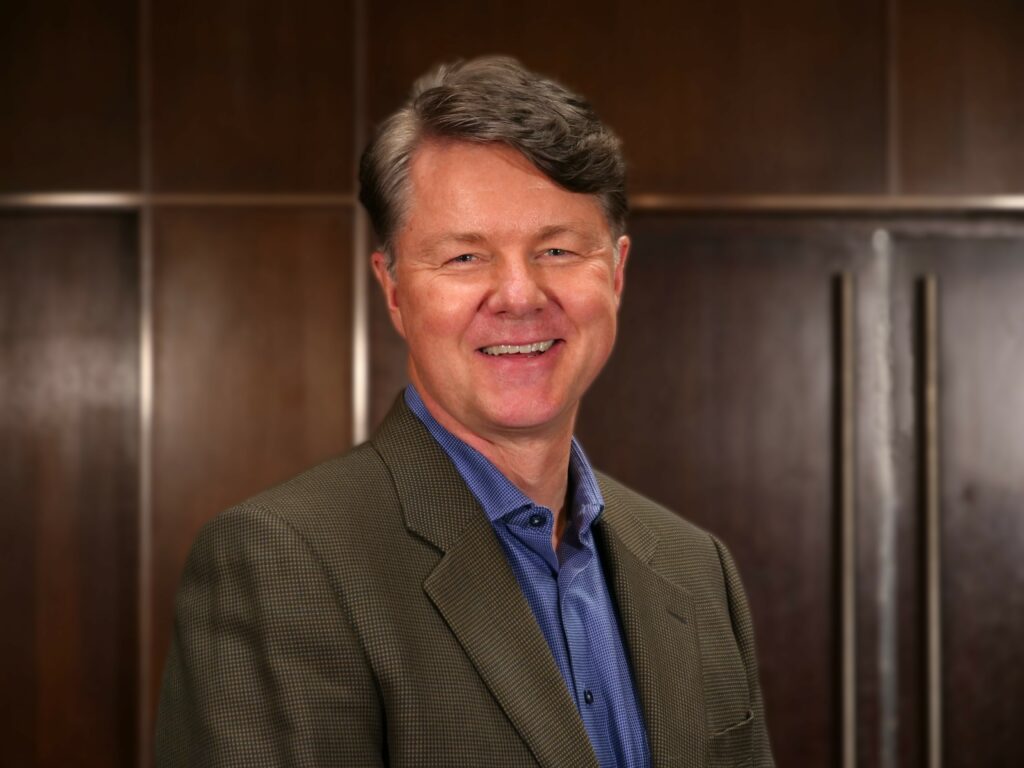Scott Boyer joined the RhPAP Board of Directors in 2023 as a public member representative. Born and raised in Edmonton, the married father of two has a long history in business administration with several years in various aspects of health care including building relationships throughout rural Alberta. In his spare time, he can be found outdoors, playing his guitar, or woodworking. Rural Health Beat coordinator, Lorena Franchuk, recently chatted with the new director about his interest in accessible rural health care.

LF: Tell me about your background and where you studied business.
SB: I did my Bachelor of Arts and my Bachelor of Commerce at the University of Alberta. I completed my Master in Business Administration at the Schulich School of Business in Toronto.
LF: What kind of business opportunities have you been involved in?
SB: My first senior executive role was with DynaLIFE Diagnostics, where I managed a new division that was responsible for drug and alcohol testing across Canada. This division was later spun out of DynaLIFE as its own entity called CannAmm Occupational Health and Testing Services. Later I went on to join Insight Medical Imaging as chief executive officer. Recently, I moved outside of health care and I’m now the president of BGE Indoor Air Quality Solutions, which is involved in providing healthy indoor clean air.
LF: What brought you to the RhPAP board of directors?
SB: Rural health-care accessibility is something that I really believe in because many of the organizations that I’ve managed have operated out of small rural environments across Alberta. Receiving consistent access to health care has been an issue for our employees. When you have to go see a specialist and you are in Westlock, Hinton, Fort McMurray or even farther north, it’s a day or two-day commitment—something that we, in the city, take for granted. Health outcomes are somewhat dependent on your accessibility to health care and when you have employees living in rural areas, you want the best for them.

LF: Why is business expertise so important to health-care management?
SB: There’s a lot of accountability in health care and there’s a lot of complexity. Having a well-diversified team of finance, human resources, and medical leadership together helps organize and create stability in large organizations. And health care is a large organization no matter how we look at it. I believe there is a place for business expertise to support health-care management.
All the really good organizations that I’ve been a part of have always had a good medical leadership model that had business and medical leadership working together. And when that formula works well, it produces some really strong outcomes. We see this internationally in various laboratories, diagnostic imaging facilities, and even in public health care models in other countries.
LF: RhPAP is a rural focused organization. You have an urban background but have also spent considerable time working in rural Alberta. Why is it important for rural and urban to work together to achieve a better health-care system overall?
SB: I don’t think you can split out rural and urban, because they’re so dependent on each other. There are capabilities and capacity within the rural environment that can contribute to the overall effectiveness of our health sector. The scope of practice out in the rural areas is so much larger than what you have in the urban centres. Using the rural areas to develop an increased scope of practitioners is an incredible benefit for the urban sector as much as it is for the rural group. The real sweet spot of solutions is to bring eyes from different areas into the discussion.
LF: Looking through your business lens, what other thoughts do you have in helping with the challenges in health care?
SB: There’s incredible capacity within our rural workforce to contribute to the productivity of our province. Even around Edmonton, there are a number of people that commute into the city or work remotely through hybrid models. There’s untapped resources of skills and knowledge that if they stay in Alberta, Alberta gets stronger. Keeping that knowledge in our province is really important over the next 20 years.
